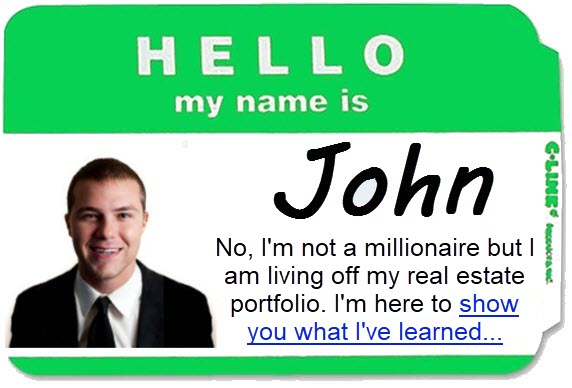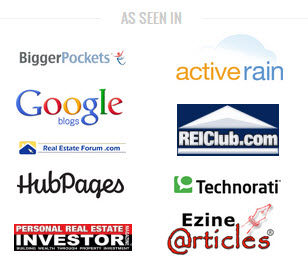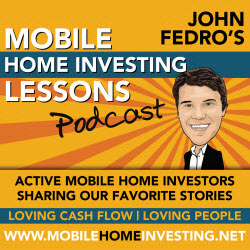Welcome back,
Mobile home parks are a business. They are owned by a person, trust, corporation, or other entity for the purpose of generating revenue and profits for all investors and owners. In my last article Mobile Home Parks Know They Hold All The Cards we discuss that if you intend to purchase and resell a mobile home inside a pre-existing mobile home park then you had better understand that park-managers and park-owners are your landlords. These folks can help advance your cash-flow portfolio rapidly or slow your business down to a crawl.
In addition to being your landlords, mobile home park-managers and park-owners should be your allies, confidants, and friends. It is for this reason that aligning yourself with a friendly and cooperative mobile home community and manager is key to your initial and long-term success. After all “cooperative” park managers help by tipping you off to new sellers that are thinking of selling, help screen your buyers, send potential buyers your way, help you manage your current properties, and more.
Three Types of Mobile Home Parks and/or Managers
You are likely to find every mobile home park/manager you come into contact with being comparable to one of the descriptions below:
Investor Note: When I refer to “parks” or “park” I am referring to the park manager, park owner, and the overall park policies governing investors unless otherwise specified.
1. The “Cold Shoulder” Park:
These parks are likely a nationwide chain of mobile home parks and/or doing very well. When I say doing very well, they are likely to not have many vacancies, are popular in the community, are likely a 3-star or higher park, and are corporately owned.
These parks do not typically wish to work with investors. The reason is not personal but financial. The top reasons a mobile home park would not want an investor working with them are;
- The corporation has a policy against investors.
- The park manager is investing in the mobile homes themselves and does not want the competition.
- The park has been fined by allowing a non-licensed individual from investing there (state specific).
- The park has been financially burned or has had a bad experience with an investor in the past.
When you come across these “cold shoulder” parks simply smile and ask if they know of any other parks that may suit your needs better. Make sure this “no investors allowed” conflict is not about reselling to a park approved buyer. Based on the market research data collected by mobile home investors I have personally worked with around the country and myself, this type of park makes up approximately 20% of the US marketplace.
2. The “Passive” Park:
These parks will allow investors to buy and sell mobile homes within their “walls,” but will not lend much aid to the investor. These parks are usually very money-hungry and see the investor as another tenant that will be paying monthly lot-rent, whether your home is occupied or vacant. You = $$$
The parks will sell you their used mobile homes that they do not want or wish to fix up. You are not likely to get much of a discount here; these parks want the prices they want (usually cash prices higher than normal) for the homes they have for sale. In addition monthly lot-rent may be too high, a reason for the slightly elevated vacancy rate in the park. Again, based solely on a decade of market research collected by mobile home investors I have personally worked with around the country and myself, this type of park is often times corporately owned or family owned and makes up approximately 40% of the US market place.
3. The “Eager to Help” Park:
The last class of parks have friendly attitudes and likely a friendly park manager that helps bring unity to the community. This park manager wants what is best for the community and sees you as someone who can continue to add value to this community (as well as revenue for the park). These managers will more than likely alert you to new FSBO’s that become available and go over-and-above working out a win-win deal with you for most homes the park is selling itself.
The vacancy rate will be all over the place here. If there is a high percentage (over 25%) of empty or vacant pads ask the park manager and residents why this is so. Are people leaving by the handful? Was the park recently sold? Are more homes being added?
Conclusion:
The above classes of mobile home parks can vary and change with time and demand. The above list does not take into account for park managers that are having “bad days.” Using the list above will not help you to avoid “Cold Shoulder” type parks but help you to organize and understand which type park manager you are speaking with at each unique community. Always remember that you are there to help the park, first impressions count, nobody likes a trouble maker, and always show a smile.
Love what you do daily,
John Fedro
support@mobilehomeinvesting.net
Related Mobile Home Investor And Park Relationships video:
















5 Comments
John Stevens III
July 28, 2012Hey John,
Im lucky you posted these articles. I am about to be headed to some local parks to check out the scene and I was glad to read your tips. I think I may have to get at you about the course.
John Fedro
July 29, 2012Hi John,
Thanks for coming by and reading the articles and thanks for your kind words. You are “lucky” because you are one of the few that is putting in the effort to further your knowledge and read how-to articles in your free time… You create your own luck John! The tips above are only a fraction of the training you’ll receive if you decide to sign up with our MH training formula.
Either way keep up the excitement, make some offers, and help some sellers and buyers!
Best,
John
Wayne Lamson
August 6, 2012Hi John,
Where do you think our time is best used when first getting started? I don’t want to waste my time but I do want to make certain I am most effectively using my resources.
Really like the great content. This is stuff I can not find anywhere else on line.
Wayne
[…] Related article: Three types of mobile home park managers […]
[…] 3 types of mobile home park managers […]
Leave A Response